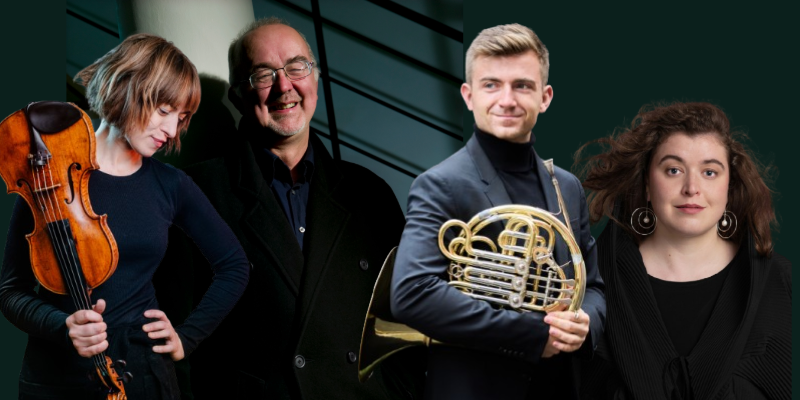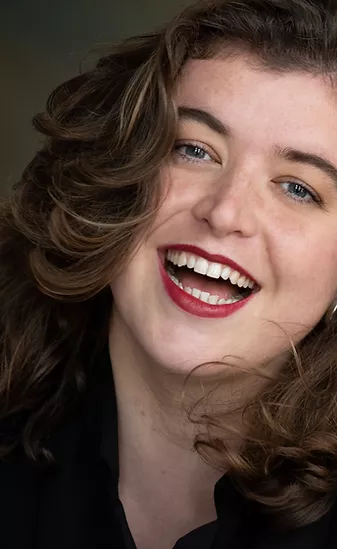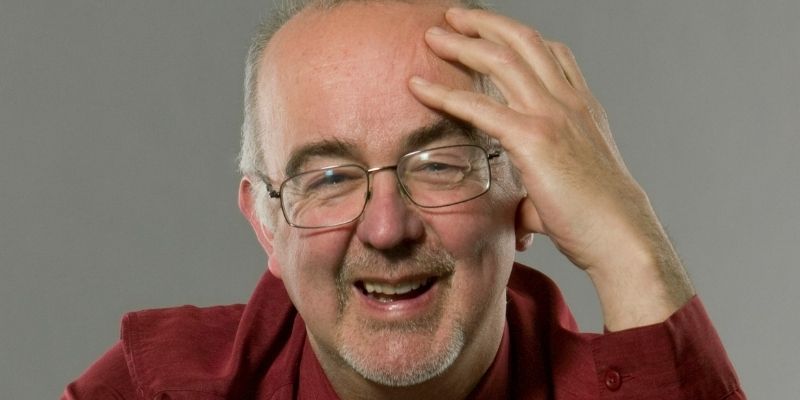
Fenella Humphreys, violin, Martin Roscoe, piano, Ben Goldscheider, horn, and Jess Dandy, contralto
THIS was two recitals in one. It began and ended with three instrumental works, one each from Robert and Clara Schumann at the start, with the Brahms Horn Trio to finish.
In between we had a song recital from contralto Jess Dandy, with Martin Roscoe as her ‘collaborative pianist’ (we are no longer allowed to speak of accompanists, such is the woke world we live in). Indeed, he was omnipresent and vivid throughout the evening.
Ben Goldscheider’s horn was in pretty good form for Robert’s Adagio and Allegro, Op 70, if not quite at the peak he reached later. One top note even went astray, but he bounced back quickly. His legato was marvellously smooth in the Adagio. One had to smile at the ducking and diving between him and Roscoe in the Allegro, which maintained a tactically immaculate blend.
Less extrovert were the Three Romances, Op 20 for violin and piano by Clara. Fenella Humphreys wisely kept her violin intimate in the opening Andante in D flat major but without compromising her naturally rich tone. The ebb and flow with Roscoe in the finale was a delight. Clara may not have been as persuasive a melodist as her husband, but she knew how to balance these instruments.
Goldscheider was back to join Humphreys for the Horn Trio in E flat at the close. He despatched it with the panache of the super-confident. But Humphreys matched him stride for stride and their balance in the opening movement’s dialogue was impeccable. Goldscheider found a lovely pianissimo for the return of the first theme.
A smoothly elegiac trio allied to a perky scherzo prepared us for penetrating the Adagio’s darker moments. But the rondo was altogether light-hearted, gambolling through its episodes with gay abandon.
Roscoe was the mastermind behind this trio’s cohesion. The best was certainly kept until last. Jess Dandy is a fine talent and as a true contralto she is a rare bird, one to be carefully nurtured.
She is not quite the finished article, however. It took her until her very last song, Schumann’s Requiem, the last of his Op 90 settings, to produce a real pianissimo. Until that point, she had stuck to a stolid mezzo forte or more with little variation in tone. It was as if she had been casting around for a focus.
With a little more confidence she could stop worrying about delivering a beautiful sound – she already has that – and concentrate on interpreting the poetry (but not by shaking her head for emphasis as much as she does).
There was still a great deal to enjoy in what she offered. She glowed at the top of Clara’s setting of Heine’s Ich stand in dunkeln Träumen (I Stood Darkly Dreaming) over Roscoe’s richly flowing accompaniment and found a nicely contemplative mood for Robert’s Stille Tränen (Silent Tears), which was complemented by an exquisite postlude.
She and Humphreys (now on viola) had blended well in Brahms’s Two Songs Op 90, where they and Roscoe negotiated the tempo-changes with pleasing dexterity.
Review by Martin Dreyer




